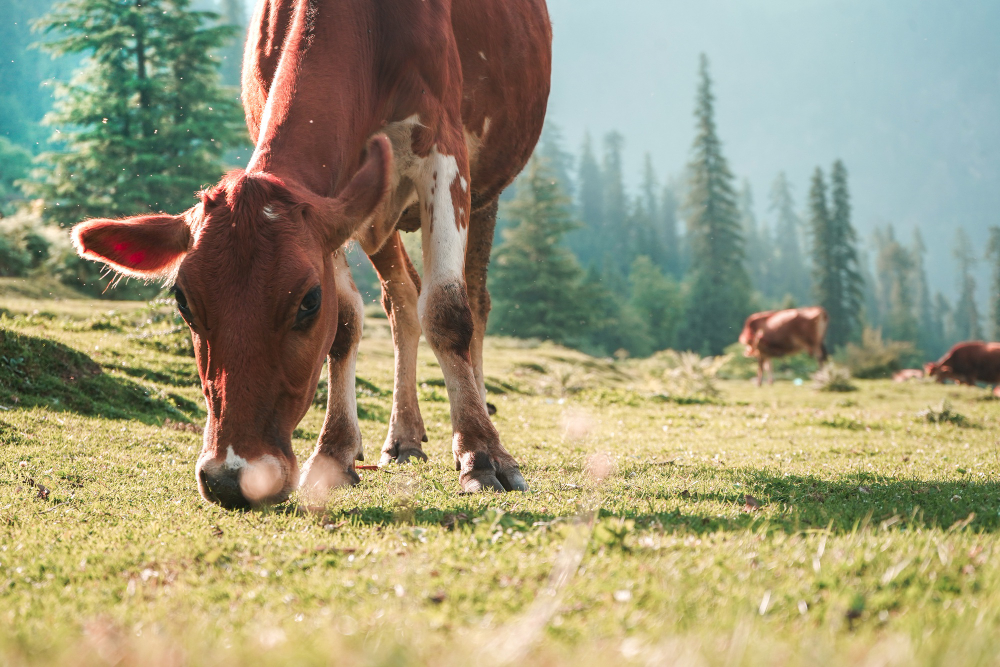Spain is the country with the largest number of innovative projects financed by the European Union (EU), supported by the rural development pillar of the Common Agricultural Policy (CAP), in the 2014-2020 programming period. According to the inventory of innovative projects in the agri-food and forestry sector, more than 700 innovative projects have been promoted within the framework of the European Innovation Partnership in agricultural productivity and sustainability (AEI-Agri).

Behind Spain, in this order, are Italy, Germany and the Netherlands; as the States with the greatest number of innovative projects in the agri-food and forestry sector that have received European funding. In Spain, this aid was implemented in the regional rural development programs of 15 communities and in the National Rural Development Program (PNDR) of the Ministry of Agriculture, Fisheries and Food.
124 innovative projects developed
The Ministry of Agriculture, Fisheries and Food has published a dossier with the most relevant information on the 124 innovative projects that have been developed by supra-autonomous operational groups on agricultural productivity and sustainability, which have received funding of 62 million euros in the National Rural Development Program. The report highlights the importance of digital transformation as a key to innovation to achieve a more competitive, more sustainable and essential sector for food security, generating a great impact in rural areas.
Projects to highlight:
SELAMBQ
Spanish Entrefino Lambskin Quality Project. Improving the quality of the skin of the Spanish entrefino lamb. Study of the causes of the decline in the quality of Entrefino lamb skins and solutions applied to reverse it.
Project objectives:
- Determine the risk factors that increase the presentation of skin defects in fine lambs.
- Determine the causes that cause the appearance of lesions on the skin of lambs, especially those associated with straw chopping and white spots.
- Establish management guidelines and production techniques that reduce the occurrence of skin lesions.
Preparation of a good practice guide aimed at the production of quality skins in fine lambs.
REDAPORC
Digital platform for the comparative evaluation of the level of antibiotic consumption in pig farms. REDAPORC promotes the reduction of the use of antibiotics in pig farms and companies by developing a digital platform that compares consumption between farms, based on health risks and biosafety.
Project objectives:
- Identification and characterization of risk factors for antibiotic consumption in Spanish white-coated pig farms.
- Development of a platform for the capture and comparison of information on health risks and antibiotic consumption between farms and companies in the pork sector.
- Sensitization, awareness and training of producers, veterinarians and visitors in the risks associated with the consumption of antibiotics in pig farms, in the use of the app and the website and in the operation of the platform, energizing its use to reduce the use of antibiotics .
OVINNOVA
An innovative business model for transhumance, an ancient and necessary practice. OVINNOVA promotes the design of a business model for the provision of livestock services to improve the competitiveness of transhumant grazing. Transhumance is essential for the conservation of biodiversity and the sustainable management of the “pasture” resource.
Project objectives:
- Configure a new business model for providing summer grazing services for meat sheep farms in the southwest of the Iberian Peninsula.
- Recover the pastoral use by sheep of ports in the Cantabrian mountain range and, consequently, enable the recovery of the corresponding surface of pastures in the south of the peninsula.
- Dignify, guarantee transhumance activity and improve relationships between ranchers-shepherds-owners-managers-environmentalists.
GESVAC 4.0
Management 4.0 of the beef sector: Collaborative advanced management platform to improve the profitability of livestock farms through their digital transformation. GESVAC 4.0 promotes the development of a collaborative platform at the national level through the effective and automatic digitization of processes and information from the beef sector, allowing profitability and sustainability to be analyzed.
Project objectives:
- Define the necessary sources of information and the access systems to them.
- Develop a global system of indicators of environmental sustainability and profitability of farms.
- Develop and implement new low-cost tools for farm evaluation.
- Design, build and validate an integrated information management platform.
















